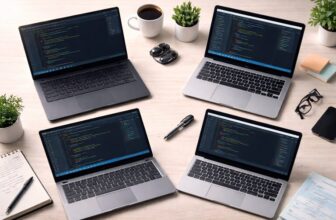

It must have been tough for chocolate lovers to get any chocolate when Willy Wonka was hiding golden tickets inside the wrappers.
Joking aside, that’s more or less been the vibe from Prismatic Evolutions, the just-released, mega-hyped Pokémon card set that’s memorable for its heavy representation of the fan-favourite Pokémon Eevee, and all its evolutionary forms. The 180+ card set was smoke-signaled by The Pokémon Company a little under four months out from its January 2025 release, and fans have anticipated it as the de facto set to look out for, largely due to its similarity to the most popular TCG expansion from the company’s previous card generation, Evolving Skies.
Not only has this made the set impossible to find on the shelves, but a confluence of issues has made opening them feel awful, and way less fun than you’d think, even if you’re lucky enough to find any packs in the wild.
How Prismatic Evolutions intensified Poké fever
To understand why this particular set has started in-store riots and website crashes, here are the key details to know.
Broadly, Pokémon trading cards have experienced a resurgence after COVID lockdowns in 2020 inadvertently reignited the hobby’s popularity. This, in turn, created a strong re-seller market, which continues to this day.
In short, The Pokémon Company loves to make cards (it released six expansions in 2024), and people still love to buy, play, and resell them (they bought 12 billion of them last fiscal year).
MSRP packs are basically free money at a scale never before seen in this hobby
What’s pertinent to note here is that in between each generation of Pokémon video games (roughly every three to four years), The Pokémon Company likes to make structural changes to the card game. And in between every card expansion release (roughly every two to four months), it is known to tinker.
Hidden among those subtle changes are the reasons why this new set is growing in infamy.
The ‘Alt Art’ explosion
During the 2020-2023 Sword & Shield–era of cards (eras are typically named after the most recent video game in the series), Pokémon revitalised a type of rare card referred to as Secret Illustration Rares (SIRs), but which are often colloquially referred to as Alternate Arts, or ‘Alt Arts’.
The most sought-after of these textured, artistically bold cards can fetch hundreds of dollars straight out of the pack, with one notable standout going for almost triple the price of the next most valuable: the Umbreon Vmax, or ‘Moonbreon’, as many refer to it. Though the price fluctuates a lot, it’s a card that’s consistently reselling at over $1,400 (as of the beginning of 2025)!

Generally though, the existence of expensive cards is nothing too out of the ordinary, right? While $1,400 is a wild price for a relatively new trading card, keep in mind that it took years of supply and demand cycles for it to reach that height; it spent the majority of its existence hovering around the $150-$350 range when the set was more readily available. And in general, I’d argue a sign of a healthy collecting hobby is a culturally-agreed-upon ‘main chase’.
But the compounding problem is that Alternate Arts have set the new standard for what people want to chase, and how they want to do it. Both fans and The Pokémon Co. have caught on big time.
While you’d be a fool to cite pre-release card prices — a measure you could set your clock to crashing within days (if not hours) upon release — the most sought-after Umbreon in this new set has already sold a few dozen times on eBay at a ludicrous range of around $1,200-$2,100 raw… and that resale price has been growing, not falling.
And that’s only Umbreon; many other cards in this set are selling for hundreds of dollars apiece, as well. It’s clear people feel they previously missed the boat on these special rarity cards. And unfortunately, that’s creating massive waves not only on the resale prices of each card, but more vitally, on all sealed products.

While a single Pokémon card pack retails for $4.49, Prismatic packs have spent nearly a week fluidly reselling for around $10-$20 — and for much longer, if you count illegal pre-release sales. The Elite Trainer Boxes (a box that contains nine packs, plus additional playing materials) retail for $49.99, but are selling for well over $100 apiece. Plus, given that Prismatic is what’s known as a ‘special’ set, there are no traditional 36-pack booster boxes available to buy to offset demand.
Put another way, MSRP packs are basically free money at a scale never before seen in this hobby. Right now, you can easily double, triple, maybe quadruple your money if you were to find some at the store for MSRP.
It’s so lucrative, that more people than ever are not even thinking about collecting Pokémon cards as a hobby; sealed items are being treated as a speculative currency. (More on the reseller market in a minute.)
Pokémon Co. has clearly switched up pull-rate logic
Given all these big chases, it seems like this would still be an exciting set to open up if you only had some, right? Maybe, but TPC has made changes that have made this set, for lack of a better word, feel worse:
- Illustration Rares are alternated out, in favour of “Master Ball” reskins
- Pull rates are seemingly similar to those of non-Special sets
- There are nearly triple the amount of cards in the rarest tier compared to Evolving Skies
- An extraordinarily rare tier has been added, wreaking havoc on prices
First, this important tidbit: between the Sword and Shield and Scarlet and Violet (SV) card generations, The Pokémon Company added another opportunity ‘slot’ among the 10 additional cards you get in a pack. (A “slot” simply means the placement inside the pack where you can expect to see a certain type of hit among the 10 cards.) Adding this was also how TPC justified an increase from $3.99 to $4.49 a pack, MSRP.
This change was met with a bit of scepticism at first, but it was a smart move. You now drastically feel the difference when opening up older packs, which feel brutally stingy, while SV sets feel brimming with potential.
However, Prismatic Evolutions has ditched a lot of the rare card types in favour of relatively straightforward ‘reskinned’ versions of common cards, meaning that instead of a full-surface, unique artwork coming up in a rare slot, your extremely lucky pull might look identical to a common card, but with added texture. And sure, the Master Balls are a great addition, but the packs feel far more muted.
Meanwhile, the fact that this is a ‘special’ set heavily implied it would stick to standards from special sets prior; not only that it wouldn’t be sold by the booster box (it isn’t), but that it would dispense hits at higher, or at least more varied rates.
Well, it doesn’t. Pull rates of all rarities appear to be no better than any regular SV set before it. If you really want to get into the weeds, and then some, Youtuber Danny Phantump has a great analysis of Prismatic pull rates.
Which cascades into the next problem: there are 32 freaking Alt Arts in Prismatic Evolutions!
For reference, the Pokémon set the famous Umbreon VMAX hails from, Evolving Skies, featured a then-hefty 11 cards of the highest rarity tier, which was nearly the most of any SW:SH set; most feature around half a dozen or fewer Alt Arts. SV sets have been increasing the Alt Art totals ever since, but Prismatic takes the cake.
The vast majority of people are hunting the nine Eevee cards. But factoring the math of pulling any Alt Art shaking out to be very roughly a 1:50 gamble, that means you’d expect to find between only three to five Alt Arts per the equivalent of a case of booster boxes (that’s six boxes). You could easily open up one hundred packs and get one, two, or zero Alternate Arts, let alone any Eevee ones. That’s currently an average of $1,500 of pack value. Yikes.
And finally, one of the coolest additions in Pokémon card history has so far rendered the whole set prohibitively expensive: ‘god packs’. For the first time in English, borrowed from Japanese sets before it, any Prismatic Evolution pack has the potential of being stuffed with only the nine Eevee Alt Arts inside, plus an Eevee Master Ball. (There also exist ‘demi-god’ packs, which will net you three random Alt Arts in one pack.)
Because we can’t have nice things, the still-very-early resale value of all the Eevee SIRs combined (plus Eevee Master Ball) is fluctuating near or above $5,000. To put that into gobsmacking perspective, that’s the same price-neighborhood as a first-edition base set booster pack, the literal first print of the first set of Pokémon cards ever made.
So, what’s $20 to buy a pack if you might make $5,000? You almost certainly won’t, but the possibility is what dictates the price.
A perfect storm
There are other reasons this set is blowing up, the most obvious being that Prismatic, along with Surging Sparks before it, is (almost) the first SV sets to highlight the most popular Pokémon, as opposed to introducing newer ones.
But consider these things, too: the Pokémon TCG Pocket app released in October, and has been a runaway hit, bringing many back to the hobby. Crypto is also broadly rising, which traditionally inflates hobby markets as it goes up (not to mention a million other socio-economic, globalisation factors). And if you think demand is high now, wait until a Pokémon game is announced for something called the ‘Switch 2‘.
The signs this was going to be an issue are so plentiful, it’s enough to make you think The Pokémon Company is creating this problem on purpose. Yet for its part, the company issued a very rare public statement vaguely declaring they would fight the supply problems:

All of this leaves the hobby in a seemingly unforced, delicate spot.
Sure, business from sales will be amazing short-term, and artistically, we now have this very cool set that features the original 151 Pokémon in a Mucha-esque art style. But it costs so much money to play, it leaves you with an existential crisis over opening even a single pack. If you find a three-pack at the store for $15, why not sell it for $30-$50? Let alone if you find several.
And the set has pull rates so pedestrian that it feels ruinous to open what equates to hundreds of dollars worth of packs just to hit absolutely nothing, which is quite common. Would you rather have 20 packs, or a Switch 2? In this way, Pokémon cards no longer feel like a raffle, they feel like a lottery.
That’s a fundamental problem so bad, it’s unsustainable. There is no such thing as an ‘average’ demographic for $20 packs and $5,000 chases. For certain, there aren’t tons of people building decks using cards from packs with those prices. And even if prices fell some, which they will, that’s still way too high. The Pokemon Company is looking down the barrel of a permanently shifted demographic.

And look, it’s one thing to simply point at high prices and say, “Bad!” — I understand a successful game and business realistically allow for people to chase cards and create hype. Rare chases are good, and fun. However, manipulating and maintaining a demand that’s so much higher than supply, over a product with utterly dejecting hit rates?
Well, let’s put it in a way Pokémon fans will appreciate: what would happen if the next mainline video game cost $150 and the only monsters findable were the 1-in-4,000-chance, shiny Pokémon? It’s simple: people would get bored of looking and stop playing.

It must have been tough for chocolate lovers to get any chocolate when Willy Wonka was hiding golden tickets inside the wrappers.
Joking aside, that's more or less been the vibe from Prismatic Evolutions, the just-released, mega-hyped Pokémon card set that’s memorable for its heavy representation of the fan-favourite Pokémon Eevee, and all its evolutionary forms. The 180+ card set was smoke-signaled by The Pokémon Company a little under four months out from its January 2025 release, and fans have anticipated it as the de facto set to look out for, largely due to its similarity to the most popular TCG expansion from the company’s previous card generation, Evolving Skies.
Not only has this made the set impossible to find on the shelves, but a confluence of issues has made opening them feel awful, and way less fun than you’d think, even if you’re lucky enough to find any packs in the wild.
How Prismatic Evolutions intensified Poké fever
To understand why this particular set has started in-store riots and website crashes, here are the key details to know.
Broadly, Pokémon trading cards have experienced a resurgence after COVID lockdowns in 2020 inadvertently reignited the hobby’s popularity. This, in turn, created a strong re-seller market, which continues to this day.
In short, The Pokémon Company loves to make cards (it released six expansions in 2024), and people still love to buy, play, and resell them (they bought 12 billion of them last fiscal year).
MSRP packs are basically free money at a scale never before seen in this hobby
What’s pertinent to note here is that in between each generation of Pokémon video games (roughly every three to four years), The Pokémon Company likes to make structural changes to the card game. And in between every card expansion release (roughly every two to four months), it is known to tinker.
Hidden among those subtle changes are the reasons why this new set is growing in infamy.
The ‘Alt Art’ explosion
During the 2020-2023 Sword & Shield-era of cards (eras are typically named after the most recent video game in the series), Pokémon revitalised a type of rare card referred to as Secret Illustration Rares (SIRs), but which are often colloquially referred to as Alternate Arts, or 'Alt Arts'.
The most sought-after of these textured, artistically bold cards can fetch hundreds of dollars straight out of the pack, with one notable standout going for almost triple the price of the next most valuable: the Umbreon Vmax, or 'Moonbreon', as many refer to it. Though the price fluctuates a lot, it’s a card that’s consistently reselling at over $1,400 (as of the beginning of 2025)!

Generally though, the existence of expensive cards is nothing too out of the ordinary, right? While $1,400 is a wild price for a relatively new trading card, keep in mind that it took years of supply and demand cycles for it to reach that height; it spent the majority of its existence hovering around the $150-$350 range when the set was more readily available. And in general, I’d argue a sign of a healthy collecting hobby is a culturally-agreed-upon 'main chase'.
But the compounding problem is that Alternate Arts have set the new standard for what people want to chase, and how they want to do it. Both fans and The Pokémon Co. have caught on big time.
While you’d be a fool to cite pre-release card prices — a measure you could set your clock to crashing within days (if not hours) upon release — the most sought-after Umbreon in this new set has already sold a few dozen times on eBay at a ludicrous range of around $1,200-$2,100 raw… and that resale price has been growing, not falling.
And that’s only Umbreon; many other cards in this set are selling for hundreds of dollars apiece, as well. It’s clear people feel they previously missed the boat on these special rarity cards. And unfortunately, that’s creating massive waves not only on the resale prices of each card, but more vitally, on all sealed products.

While a single Pokémon card pack retails for $4.49, Prismatic packs have spent nearly a week fluidly reselling for around $10-$20 — and for much longer, if you count illegal pre-release sales. The Elite Trainer Boxes (a box that contains nine packs, plus additional playing materials) retail for $49.99, but are selling for well over $100 apiece. Plus, given that Prismatic is what’s known as a 'special' set, there are no traditional 36-pack booster boxes available to buy to offset demand.
Put another way, MSRP packs are basically free money at a scale never before seen in this hobby. Right now, you can easily double, triple, maybe quadruple your money if you were to find some at the store for MSRP.
It’s so lucrative, that more people than ever are not even thinking about collecting Pokémon cards as a hobby; sealed items are being treated as a speculative currency. (More on the reseller market in a minute.)
Pokémon Co. has clearly switched up pull-rate logic
Given all these big chases, it seems like this would still be an exciting set to open up if you only had some, right? Maybe, but TPC has made changes that have made this set, for lack of a better word, feel worse:
- Illustration Rares are alternated out, in favour of "Master Ball" reskins
- Pull rates are seemingly similar to those of non-Special sets
- There are nearly triple the amount of cards in the rarest tier compared to Evolving Skies
- An extraordinarily rare tier has been added, wreaking havoc on prices
First, this important tidbit: between the Sword and Shield and Scarlet and Violet (SV) card generations, The Pokémon Company added another opportunity 'slot' among the 10 additional cards you get in a pack. (A “slot” simply means the placement inside the pack where you can expect to see a certain type of hit among the 10 cards.) Adding this was also how TPC justified an increase from $3.99 to $4.49 a pack, MSRP.
This change was met with a bit of scepticism at first, but it was a smart move. You now drastically feel the difference when opening up older packs, which feel brutally stingy, while SV sets feel brimming with potential.
However, Prismatic Evolutions has ditched a lot of the rare card types in favour of relatively straightforward 'reskinned' versions of common cards, meaning that instead of a full-surface, unique artwork coming up in a rare slot, your extremely lucky pull might look identical to a common card, but with added texture. And sure, the Master Balls are a great addition, but the packs feel far more muted.
Meanwhile, the fact that this is a 'special' set heavily implied it would stick to standards from special sets prior; not only that it wouldn’t be sold by the booster box (it isn’t), but that it would dispense hits at higher, or at least more varied rates.
Well, it doesn’t. Pull rates of all rarities appear to be no better than any regular SV set before it. If you really want to get into the weeds, and then some, Youtuber Danny Phantump has a great analysis of Prismatic pull rates.
Which cascades into the next problem: there are 32 freaking Alt Arts in Prismatic Evolutions!
For reference, the Pokémon set the famous Umbreon VMAX hails from, Evolving Skies, featured a then-hefty 11 cards of the highest rarity tier, which was nearly the most of any SW:SH set; most feature around half a dozen or fewer Alt Arts. SV sets have been increasing the Alt Art totals ever since, but Prismatic takes the cake.
The vast majority of people are hunting the nine Eevee cards. But factoring the math of pulling any Alt Art shaking out to be very roughly a 1:50 gamble, that means you’d expect to find between only three to five Alt Arts per the equivalent of a case of booster boxes (that’s six boxes). You could easily open up one hundred packs and get one, two, or zero Alternate Arts, let alone any Eevee ones. That’s currently an average of $1,500 of pack value. Yikes.
And finally, one of the coolest additions in Pokémon card history has so far rendered the whole set prohibitively expensive: 'god packs'. For the first time in English, borrowed from Japanese sets before it, any Prismatic Evolution pack has the potential of being stuffed with only the nine Eevee Alt Arts inside, plus an Eevee Master Ball. (There also exist 'demi-god' packs, which will net you three random Alt Arts in one pack.)
Because we can’t have nice things, the still-very-early resale value of all the Eevee SIRs combined (plus Eevee Master Ball) is fluctuating near or above $5,000. To put that into gobsmacking perspective, that's the same price-neighborhood as a first-edition base set booster pack, the literal first print of the first set of Pokémon cards ever made.
So, what’s $20 to buy a pack if you might make $5,000? You almost certainly won’t, but the possibility is what dictates the price.
A perfect storm
There are other reasons this set is blowing up, the most obvious being that Prismatic, along with Surging Sparks before it, is (almost) the first SV sets to highlight the most popular Pokémon, as opposed to introducing newer ones.
But consider these things, too: the Pokémon TCG Pocket app released in October, and has been a runaway hit, bringing many back to the hobby. Crypto is also broadly rising, which traditionally inflates hobby markets as it goes up (not to mention a million other socio-economic, globalisation factors). And if you think demand is high now, wait until a Pokémon game is announced for something called the 'Switch 2'.
The signs this was going to be an issue are so plentiful, it’s enough to make you think The Pokémon Company is creating this problem on purpose. Yet for its part, the company issued a very rare public statement vaguely declaring they would fight the supply problems:

All of this leaves the hobby in a seemingly unforced, delicate spot.
Sure, business from sales will be amazing short-term, and artistically, we now have this very cool set that features the original 151 Pokémon in a Mucha-esque art style. But it costs so much money to play, it leaves you with an existential crisis over opening even a single pack. If you find a three-pack at the store for $15, why not sell it for $30-$50? Let alone if you find several.
And the set has pull rates so pedestrian that it feels ruinous to open what equates to hundreds of dollars worth of packs just to hit absolutely nothing, which is quite common. Would you rather have 20 packs, or a Switch 2? In this way, Pokémon cards no longer feel like a raffle, they feel like a lottery.
That’s a fundamental problem so bad, it’s unsustainable. There is no such thing as an 'average' demographic for $20 packs and $5,000 chases. For certain, there aren’t tons of people building decks using cards from packs with those prices. And even if prices fell some, which they will, that’s still way too high. The Pokemon Company is looking down the barrel of a permanently shifted demographic.

And look, it’s one thing to simply point at high prices and say, “Bad!” — I understand a successful game and business realistically allow for people to chase cards and create hype. Rare chases are good, and fun. However, manipulating and maintaining a demand that’s so much higher than supply, over a product with utterly dejecting hit rates?
Well, let’s put it in a way Pokémon fans will appreciate: what would happen if the next mainline video game cost $150 and the only monsters findable were the 1-in-4,000-chance, shiny Pokémon? It’s simple: people would get bored of looking and stop playing.






